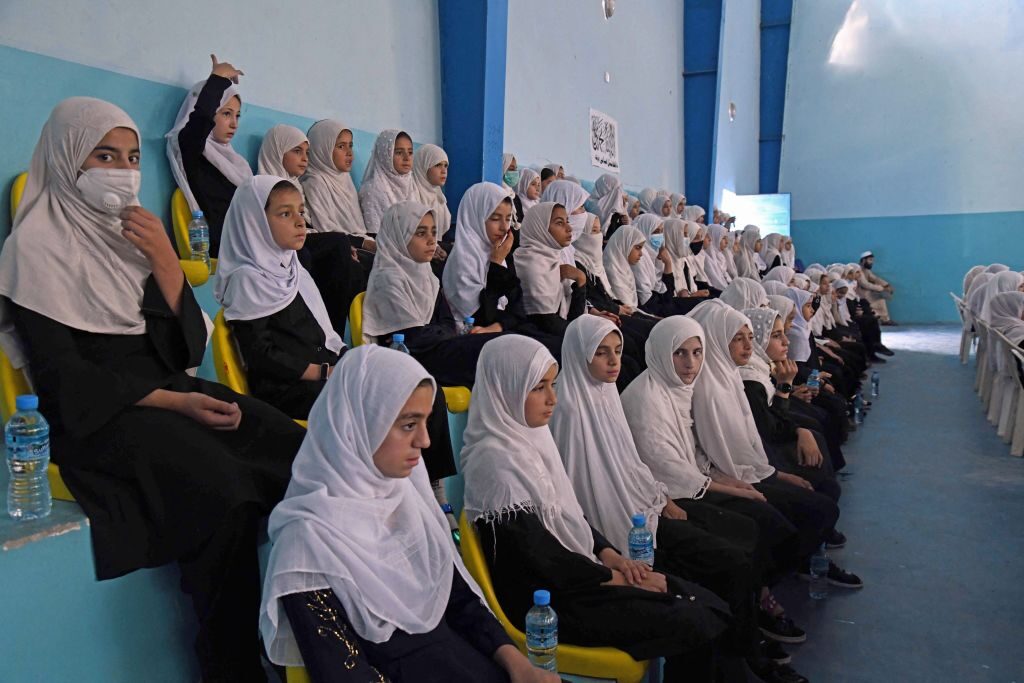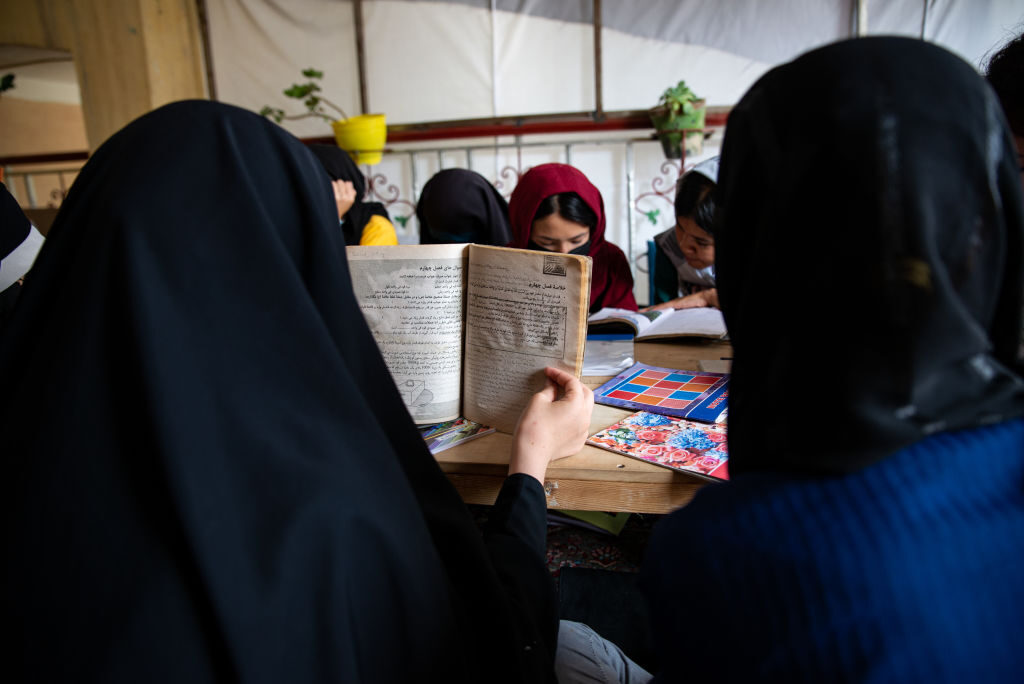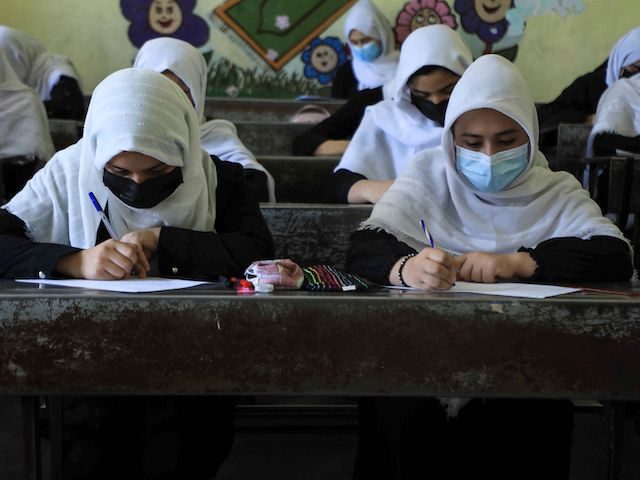Mawlawi Khaliqyar Ahmadzai, head of the culture and information department for the government of Paktia province of Afghanistan, said on Tuesday that high schools for girls have been reopened, without permission from the Taliban, which has suppressed education for women ever since they seized power in August 2021.
“The schools have opened some days ago, the rules about Islam, culture and customs are observed, the principal of schools asked the students to come back to school and the girls’ high schools are open,” Ahmadzai told Reuters on Tuesday.
“A spokesperson for Paktia’s education department confirmed girls’ high schools have opened but said his department was not informed in advance and they had sent letter to the national education ministry and were waiting for the response,” Reuters reported.
The Taliban promised to less brutishly repressive of women when it took power after President Joe Biden’s disastrous withdrawal from Afghanistan, but soon began reneging on promises to the United Nations that it would permit higher education for girls.
Only two days after promising to reopen all of Afghanistan’s schools on March 21, the Taliban ordered secondary schools for girls to remain closed indefinitely. The excuse given by the government of the so-called “Islamic Emirate of Afghanistan” was that more time was needed to ensure schools for women would comply with “principles of Islamic law and Afghan culture.”

Afghan school girls sit in a classroom as the new academic year begins in Kandahar on September 7, 2022. (Photo by Javed TANVEER / AFP) (Photo by JAVED TANVEER/AFP via Getty Images)
Ahmadzai alluded to these Taliban decrees when he assured Reuters the schools for young women in his province would operate in accordance with “the rules about Islam, culture, and customs.”
Paktia province appears to be conducting the first open act of defiance against the Taliban’s ban on higher education for women, but NPR reported in July that a number of “secret schools” are operating across Afghanistan, including the capital city of Kabul. Some of these institutions are disguised as madrassas, or Islamic religious academies, but they surreptitiously offer academic material to female students as well. Others are hidden basement academies, attended by girls who must sneak past Taliban patrols with their notebooks hidden.
The Taliban also betrayed its pledges to let women participate in government, and grant them freedom of movement outside their homes. The U.N. occasionally urges the Taliban to live up to its human rights commitments, without visible effect.
“We are a different society, an Islamic society, so we can’t be matched to a European society,” Taliban spokesman Suhail Shaheen argued in a Fox News interview last month, dismissing criticism of his government’s abuses.
“We are building everything from scratch. Now, one year ago was completed everything in our taking power, and you have in the U.S. centuries — all older governments — so you’ll have everything better, so we can’t be matched,” Shaheen said.

Students read during class at a secret school on August 14, 2022 in Kabul, Afghanistan. Secondary education for girls has been banned since shortly after the Taliban regained control of Afghanistan one year ago, spurring the creation of secret, unofficial schools for older girls. (Nava Jamshidi/Getty Images)
“We need time to build everything, to put in line with our Islamic laws, the norms of that society, and we hope with the passage of time to solve all issues,” he insisted, without explaining why schools for girls are still closed after a full year of Taliban cogitation on those issues.
Fox News noted on Wednesday that Shaheen’s own daughters are allowed to attend school, a point he bizarrely attempted to refute by insisting they were only permitted in class because they “observe hijab” laws, as if most of Afghanistan’s women are carelessly flouting the hijab decree issued in May. The punishment for disobedience involves throwing the “male guardians” of uncovered women in prison.
Shaheen also recently tried to justify keeping schools closed because the Taliban is hammering out unspecified problems related to “school uniforms.”

COMMENTS
Please let us know if you're having issues with commenting.